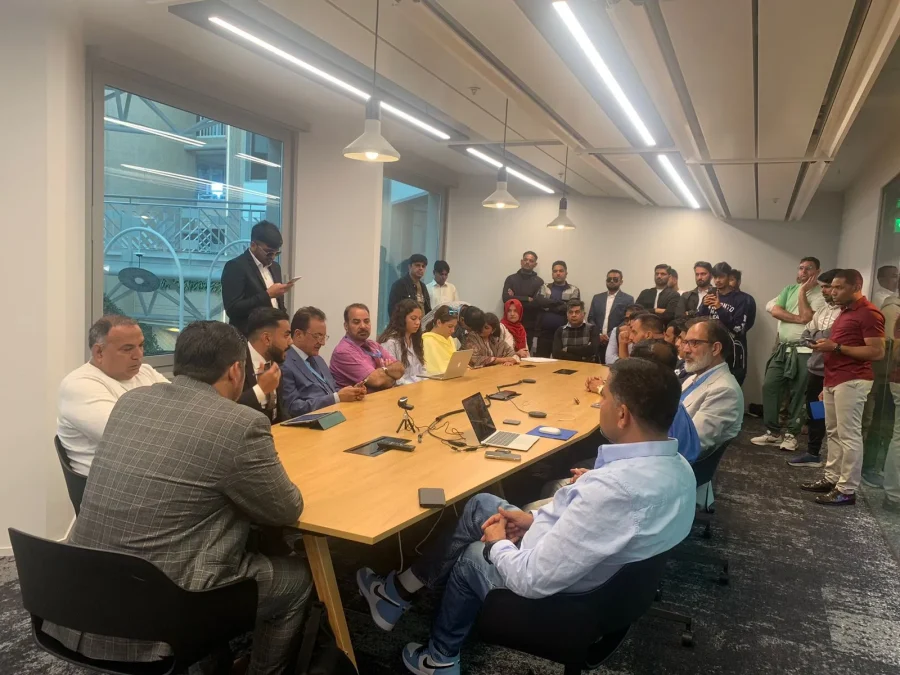Speakers at a seminar while denouncing ruthless suppression of dissent in the Indian Illegally Occupied Jammu and Kashmir by India have termed it a biggest threat Kashmiris have ever faced.
According to Kashmir Media Service, the seminar held on the sidelines of the 54th session of the Un Human Rights Council (UNHCR) in Geneva was addressed by Permanent Representative to the World Muslim Congress to the UN in Geneva Altaf Hussain Wani; Executive Director of Kashmir Institute of International Relations (KIIR) Sardar Amjad Yousaf; Mirza Asif Jarral, Advocate Parvez Ahmed, Fahim Kayani, Dr Waleed Rasool, Dr Shugafta Ashraf and Barrister Ali Kazmi.
The speakers while highlighting the dangerous dimensions of the Kashmir dispute said that Indian belligerent military occupation of Jammu and Kashmir posed a serious existential threat to the region’s indigenous population. They said it is quite unfortunate that the world has been blatantly ignoring the systematic and slow-motion genocide of the Kashmiri Muslims that has been going on in the region for the past several years. They said that the prolonged military occupation has led to the killings of hundreds and thousands of Kashmiris.
The speakers pointed out that after the 5th August 2019 the human rights situation in the region has deteriorated to alarming levels. They referred to the ruthless suppression of dissent in the region and said that essential fundamental freedoms including the right to freedom of expression and opinion, the right to peaceful assembly, the right to protest and speak remained critically suppressed. The suppression of freedom of speech and expression, they said, has led to imprisonment of thousands of Kashmiris who continue to languish in far off jails in different Indian states.
The speakers said that besides launching a massive crackdown on political activist the Narendra Modi-led Indian government let loose its dreaded National Investigation Agency (NIA) to hunt down the voice that have been critical to India’s muscular policy in Kashmir. They regrettably noted that the Indian government continued to carry out witch-hunt against the Kashmiri civil society activists, journalists and human rights defenders to advance its settler colonialism project in occupied Kashmir. They said imprisonment of noted human rights defender, Khurram Pervaiz, under infamous Unlawful Activities (Prevention) Act (UAPA) speaks volumes about how the Indian government was misusing black laws to suppress legitimate and genuine voices in IIOJK. They said along with suppression of political dissent the Modi regime has used draconian laws to silence journalists and free media in the occupied territory.
On the other hand double edged onslaught against Kashmiris has led to erosion of the Kashmiris’ identity, the speakers said. They pointed out that the government of India has introduced hundreds of new laws that lent impetus to BJP’s settler colonialism campaign to completely erase Kashmir’s political, religious, and cultural identity.
Highlighting the plight of human rights defenders, working journalists, and civil society groups who have played an important role to document human rights abuses in Kashmir, the speakers said that along with media persons the political and human rights activists continued to reel under constant harassment by the Indian authorities.
They urged the world community to play its much needed role to settle the Kashmir dispute in line with the UN Security Council’s resolutions, which call for holding a referendum to let the people of Kashmir decide their fate independently in an environment free from coercion.—KMS










